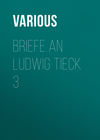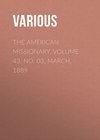Buch lesen: «Blackwood's Edinburgh Magazine, Volume 63, No. 391, May, 1848», Seite 16
I won't say what my father said when he heard of this termination of my university career. He had been a chancellor's medallist himself, and, in virtue of his medal, was listened to in parliament before the war. I believe he thought that all a man's doings in life were contained in his university exploits, like the chicken in the egg. Me he sent off to read theology with a clergyman in the country, previously to taking orders – for a family living awaited me. In this position I remained two years. I may mention, in passing, that my worthy instructor, a perfect ninny, though a former fellow of his college, despised me utterly for my past failure, and was at no pains to conceal his contempt; and at the end of that time, I set out for the cathedral city of F – , to go through the bishop's preparatory examination. Now, there is a prevalent notion in England, or at least in the English universities, that a bishop's examination is regulated after a peculiar fashion. It is reported that the prelate, or his chaplain, examines beforehand the calendars of the two universities, and adapts his subsequent questions to the information thence derived, in what may be called reverse order. Thus, a wrangler or first-classman, being supposed fit for any thing, is asked nothing in particular. It was even whispered – ay! even in these days of priestly dignity – that when my friend Grindham's eldest son, himself a second senior wrangler, went up a few weeks ago to the Bishop of – , his lordship merely demanded information respecting the feeling of the university on the Hampden question, and on being satisfactorily answered, remarked that he dined at six, and dismissed his examinee. But, to resume – the questions are said, or rather were said, to increase in difficulty with the decreasing honours of the applicant. A second-classman had questions of average difficulty put to him, a man who took no honours, was stiffly catechised; a plucked man – but how it fared, and perhaps still fares, with plucked men, you shall judge from my case. After a night of excessive nervousness at the inn, I proceeded to the palace at ten o'clock in the morning. A number of serious-looking, white-cravatted, young men were waiting in the outer room, into which I was ushered. It was bitterly cold: there was, it is true, a fire; but it was actually going out, because no one dared to stir the Episcopal embers. An inner door every now and then opened and shut, admitting each time some one individual of the shivering crowd into the dreaded presence. Many old familiar faces were there. I should perhaps have shrunk from their aspect, had not nervousness, and perhaps a feeling that every one of them might in a few minutes find himself in my identical position, placed us all on a level. So I looked almost boldly about me. After a few minutes, I was on the point of addressing an old acquaintance, when, above the shoulder of the man to whom I was about to speak, there appeared a face, often seen but always loathed in my walking and sleeping visions. It was Maxey's. The cosmopolitan handkerchief had disappeared, and the debauched eyes looked brighter and less bloodshot than of old; but it was the same Maxey who fraternised with me on the day of my fall. He was – I am sorry to say – attempting to get into orders. He had been rejected, he told me, once before, but he had now been "coached by so-and-so half a year, and meant to manage it this time." Whether Mr So-and-So provided cigars for theological pupils I did not inquire; I was too much sickened by Maxey's presence, – so much so that it was really a relief when I was summoned in my turn to the Bishop's apartment. I passed through a long passage, then through an ante-room; lastly, a door opened, and displayed his lordship sitting solemnly at a large green table. The chaplain was leaving the room just as my name was announced. I saw him put his hand to his mouth, and distinctly heard him whisper in a loud aside – "Plucked in 18 – , my Lord."
The Bishop's face assumed an expression of yet more awful solemnity. He gravely motioned me to sit down, and then, looking me full in the eyes, said – "Ah hem! I have no doubt, Mr Pennefather, you have sufficiently prepared yourself for the – hem – important office you propose to take on yourself. I am sorry to say that this – ah! – hem – most important office is often entered upon without sufficient – hem – preparation."
A pause. Fluency was not his lordship's forte. But if the moral annihilation of the object addressed is the end and aim of oratory, he proved himself in this case a Demosthenes.
He then continued – "Nothing is more – hem – essential to a clergyman than a knowledge of the early history of Christianity. Let me ask you what you know of the Patripassian heresy?"
I don't know what I might have answered under other circumstances, but the chaplain's whisper and the Bishop's exordium were too much for me. I could not utter a word. Other questions followed, to which I answered nothing or nonsense. In the end I recollect that his lordship made me a long speech, from which I gathered – it was not difficult to do this, as it consisted of the same sentence repeated in every variety of collocation – that he was very sorry that he could not admit me into orders with such – hem – ah – insufficient preparation.
I bowed and left the room, passed through the ante-chamber and passage into the apartment where the rest of the candidates were waiting, and thence made my exit with some words of Mr Maxey's dancing and humming in my ears, – "so we're plucked again, old boy!"
Between this scene and the next passage of my life, which I shall sketch or the reader's benefit, there was an interval of several years. I had been abroad most of the time, and had very nearly managed to forget my university misfortune. There was no occasion to revert to the bishop, for my elder brother died, and I stepped into his place – the family living being duly put out to nurse for my brother Tom. From the proximate parson, I had become the bachelor heir, with rooms in Piccadilly, a groom, and a brougham.
One day – it was in the course of my first season in town – I was dining with Jobson in Hamilton Place. Why I went so frequently to Jobson's, any body who remembers Emily Jobson, and what an angel she looked in that lilac silk, will easily guess. I had flattered myself I was not prospering badly with her. But I knew there was a rival in the field – no other person than my old friend Swetter, then a rising junior of five-and-thirty at the chancery bar. We were running on a tie, as I fancied – Swetter and I. The dear girl was, I am sure, very much puzzled to decide between us; and I often thought I could see, by the expression of her face, that she was balancing Swetter, his advantages and disadvantages, his possible peerage, and the necessity entailed on his wife of staying in London through the winter, against me and my little place in Surrey. And all the time, I had an uneasy consciousness that my rival could get the start, if he pleased, by confiding to Emily certain awkward antecedents of mine, known to the reader. But, to do him justice, he was too much of a gentleman to head me by such means. This I knew, and though at this very dinner-party he was sitting opposite Emily and myself, and looking exquisitely uncomfortable every time I whispered in her ear between the spoonfuls of bisque d'écrivisses, I felt certain that even greater provocation would not tempt him to peach. So all went smoothly – as smoothly as things ought to go at one of Jobson's admirable dinners. But towards the middle of the second course, Jobson's voice, which had been growing gradually louder since we sat down, became so overpowering as to beat down and absorb all other conversation. He was talking about Cambridge and his son Plantagenet. Jobson is a nouveau riche (some of his friends call him Tyburn Jobson, because he made his money in hemp), and rather unnecessarily fond of introducing the now well-known facts that Plantagenet is at the university, and Tudor in the Guards. So, Jobson giving the cue, Cambridge became the text of the general conversation. Glauber, who stammers horridly, and, like most stammering men, takes every opportunity of telling long and inextricable stories, began to hold forth, in the midst of general silence, concerning Lady Ligham's son William, whom her ladyship would persist in believing a genius, and whom she had sent to Cambridge expressly to be senior wrangler. "But," added Glauber, "only the other d..d..d..day I heard he was p..p..p..pluck – ."
The word was not out of his mouth, when that brute Jones, who was next him, gave him a tremendous admonitory poke in the side. Glauber first turned wrathfully on him, and then, beginning to comprehend, looked straight at me – his red face becoming redder with confusion, and his great goggle eyes almost starting out of his head.
"I b. b. b. beg your p. p." begun the wretch; but Swetter and Jones, who had been writhing with suppressed laughter, here gave vent to such sounds as effectually drowned his miserable voice. I gulped down a glass of champagne, and made things worse by choking myself. Meanwhile Emily looked on with a face of the utmost astonishment.
Well, we concluded dinner, drank Jobson's wine, and ascended to the drawing-room. No sooner did we enter, than I saw Emily go straight up to Swetter, and ask a question. He laughed a good deal at first, and then visibly commenced a long story. I followed it in Emily's face as clearly as if I had been listening to it. Yes! the temptation was too much for Swetter; and, to say the truth, he only did what any one else would have done in like circumstances. He told all. Determined to know my fate, I walked to Emily's chair, and began conversing in my usual strain. She was civil – just civil – but in less than five minutes, she managed to inform me that she hoped her dear brother Plantagenet would work hard at Cambridge —for the honour of his family. It was enough. Swetter and she were married in two months.
I left London without waiting for the season to conclude, and buried myself and a fishing-rod in a lonely Welsh cottage. For months I saw nobody but the old woman whom I brought from Monmouth to cook my dinners. She, I believe, thought me decidedly mad – principally because I once swore dreadfully at her, when, àpropos of a chicken on which I was to dine, she used a word vernacularly employed to signify the stripping birds of their feathers. I fished, caught nothing, and mused on Emily. At last, however, on casually extending a ramble to a greater length than usual, I found that a house, five miles from my present residence, and quite as solitary, had been taken by an English family. As a matter of course – though I really cannot precisely remember in what way – we became acquainted. All I know is, that I determined the acquaintance should commence as soon as possible, immediately after meeting a young lady in a pink bonnet, who was sauntering along the side of the stream in which I was pretending to fish. This was Caroline Lumley. They were the Lumleys – Captain and Mrs Lumley, and two daughters. The family had lived the anomalous life common to English semi-genteel families with small incomes. They had resided, now in Jersey, now in Dublin, now on the Continent – every where but in civilised and inhabitable parts of England. At present they had settled themselves down, for the sake of cheapness, in a spot where every thing except mutton and house-rent was twice as expensive as in London, and where they had to walk five miles to meet with a neighbour.
That neighbour was myself. I was sick with disappointed love, and Caroline Lumley was dying with ennui. Need I say that in six weeks we were engaged!
I really believe that she worshipped me as a superior being. There had been few or no men in the out-of-the-way places where they had lived. There never are. They are all draughted off to business and employments of various kinds. So I not only had no equal in her estimation, but could not, by any possibility, have had one. She thought me the handsomest man in the world. She used to praise my talents and accomplishments to my face. Indeed, by the side of old Captain Lumley, who, prosy by nature, had long ago exhausted all his topics, I might have appeared a Crichton. Every now and then, however, when Caroline had called me clever, there used to come over me a shudder. Could she be ever brought to think of me as Emily Jobson probably did? The idea was positively maddening. Many a night did I lie awake, speculating whether, after all, it might not be better to secure myself against another such cross of destiny by freely revealing to her my great secret.
At last, reflection, building on the reminiscences of an old Cambridge tradition, suggested to me a plan which I lost no time in executing.
"My love," said I to Caroline one morning, "did you ever hear of Cambridge?"
"Oh yes!" she replied, apparently quoting from Pinnock; "it's the capital of Cambridgeshire."
"Did you never hear any thing else about it?" rejoined I.
"It's famous for its university, isn't it?" said she, seemingly from the same source.
"On this hint I spake," and told her how that I had been educated at Cambridge, and how that, after three years of intense study, I had received the greatest honour the university had to bestow —a plucking.
"Yes," said I, my face radiant with a triumphant expression – "I was actually plucked."
"I am sure you were, you dear, clever thing!" cried she, throwing her arms round my neck.
We were married at Monmouth, and I took my bride straight to London. I own I was a little desirous of showing Emily Jobson, or rather Emily Swetter, that there was a young lady in the world quite as pretty as herself, and with better taste. Swetter and his wife called on us as soon as he heard we were in town; and shortly afterwards we dined with them at their new house in Torrington Square. Among the guests was Grindham —my Grindham, but how changed! He had become tutor of his college, and had expanded into the most perfect specimen of the university don I ever beheld. He was positively swelling with importance. So inordinately conspicuous, indeed, was his air of self-appreciation, that even my little Caroline noticed it; and I heard her ask Mrs Swetter who and what he was.
"He took the very highest honours at Cambridge," said she in reply.
Caroline smiled, and seemed to think him quite justified in looking as important as he did.
The cloth was removed. Caroline was sitting by Grindham's side. She had spoken little during dinner-time; but I had noticed that several times she had seemed fidgetty, as though she ought to say something to her neighbour. Now my wife had at that time a bad habit of speaking in a very loud voice – in consequence of a deaf father, and of the little society she had seen. The conversation, accordingly, had no sooner stopped (as is its wont) with a dead pause, than she turned to Grindham, and said in a tone of appalling distinctness —
"Mr Grindham, were you ever plucked?"
Had a trumpet been suddenly blown close to Grindham's ear, he could not have looked more thoroughly taken aback.
Caroline repeated her words with yet more frightful clearness —
"I understand that you were plucked at Cambridge."
Grindham's countenance grew purple; we had a room full of university men, and the insulting speech was overheard by all. There was a universal stare and stir; and Mrs Swetter seemed to be saying to herself, "what wild beast have I got here!"
Caroline, perceiving she had done something very much amiss, got frightened, and bent over her plate during the rest of dinner.
When the gentlemen came to the drawing-room, Mrs Swetter and she were sitting together. They had been talking, and Caroline's face was very red. Our eyes met: her look was full of contempt.
She has been more than my better half ever since. There never passes a day on which I am not taunted with my plucking.
THE REVOLUTIONS IN EUROPE
When an Eastern sage was desired by his sultan to inscribe on a ring the sentiment which, amidst the perpetual change of human affairs, was most descriptive of their real tendency, he engraved on it the words: – "And this, too, shall pass away." It is impossible to imagine a thought more truly and universally applicable to human affairs than that expressed in these memorable words, or more descriptive of that perpetual oscillation from good to evil, and from evil to good, which from the beginning of the world has been the invariable characteristic of the annals of man, and so evidently flows from the strange mixture of noble and generous with base and selfish inclinations, which is constantly found in the children of Adam.
"And this, too, shall pass away." The moral whirlwind which has lately swept over the states of Europe, and shaken all the kingdoms to their foundations, will subside. Old habits will in the end return – old affections revive – old desires resume their sway – old necessities become imperious. Institutions may be modified – dynasties overturned – forms of government altered – monarchs sent into exile; but the human heart remains, and will for ever remain, the same. That foundation being unaltered, the social necessities of men will in the end compel them to the old establishment of authority, under names perhaps new. Old power will revive, old rule be established, old authority be confirmed. The great body of men will still remain hewers of wood and drawers of water; because Nature never intended them for any other destination, and she has rendered them incapable of discharging the duties of any other station. Respectable, useful, and virtuous, when confined to it, they become pernicious and ridiculous when for a time withdrawn from it to be placed in another. Mind will ere long resume its sway over matter, moral over physical strength. Nations may rise in insurrection; they may destroy the existing government; they may establish a democratic or republican institution; – but that will not alter the nature of things; it will not compensate the incapacity for self-government of the great body of mankind; it will not relieve them from the first of human necessities, that of being directed by a few. Under one name or another – that of Decemvirs, a Triumvirate, a Committee of Public Salvation, a Directory, or a Provisional Government, the old authority is speedily evolved, only the more powerful that it has been cradled in violence. It is not the weakness, it is the irresistible strength of a democratic government which is its greatest evil. It is the iron grasp it never fails to lay on the property of others which is its principal danger, the never-failing instrument of its speedy overthrow. Property is soon swept away by it, but liberty is swept away still more quickly. A Cæsar, a Cromwell, a Napoleon, arises like an avatar to stay the wrath of Heaven let loose in the unbridled passions of men; and ages of servitude succeed one terrible and unforgotten period of popular license.
It is the more important to refer to these lasting principles in human affairs at this time that the events which have recently occurred on the Continent seem at first sight to set all former experience and history at defiance. Not only has monarchy been again overthrown, and a republic restored in France by a single urban tumult, but the contagion of the example has spread to other countries, hitherto deemed the stronghold of the conservative principle, and farthest removed from the influence of the revolutionary mania. That Italy, following in the wake of a reforming Pope, should be speedily convulsed by popular fervour, was anticipated, and might easily be understood. That Lombardy and Venice, long impatient of the Tramontane yoke, should seize the first opportunity to cast it off, was what every person acquainted with the feelings of the people in those beautiful provinces has long expected. That Prussia, the most highly educated state in Europe, and which has long murmured at the delay in conceding the popular institutions promised during the struggle with Napoleon in 1813, should make an effort now to obtain them, might be understood. That the Poles, smarting under their recent dismemberment, and mourning their lost nationality, should eagerly grasp at the shadow even of the means of restoring it, was of course to be expected. But that Austria, the most aristocratic monarchy in Europe – that Austria, without either seaports, commercial cities, or manufacturing emporiums, should be seized by the same passions, and that the monarchy which had defeated Napoleon at Aspern, and all but destroyed him at Wagram, should be overturned by an urban tumult, headed by a burgher guard and the beardless students of the university – this indeed surpassed human comprehension.
It not unnaturally induced in superstitious or highly excited minds the belief that the end of the world was approaching, or that an entire new era had opened upon human affairs, to which nothing which had preceded it could furnish any thing like a parallel. According to the temper of their minds, men and women either believed that the dark prophecies of the Revelation were about to be accomplished, and that the great battle of Armageddon was to precede the advent of the Millennium, or that the era of commercial organisation and socialist felicity was approaching, and that all the miseries of mankind were to expire amidst the universal dominion of the people. In the midst of these general hopes and fears, more experienced or practical observers fixed their eyes on the spoliation of Austria by liberalised Piedmont; of Denmark, by revolutionised Prussia; and of Lithuania, by regenerated Poland; and drew the conclusion that human selfishness was the same in all times and ages; that pirates could sail under the red as well as the black flag, and that the fervour of Louis Blanc and Lamartine would terminate in a conflict as fierce, and disasters as wide-spread, as those which followed the visions of Siêyes, and the philanthropy of Robespierre.
What is in a peculiar manner worthy of consideration in the overthrow, in so short a time, of so many of the established governments of Europe, is the facility with which they appear to have been overturned by sudden urban tumult, and the immediate submission of the whole provinces and remainder of the empire, the moment the ruling power in the capital was changed. It was not thus, in former days, either in France or any of the other European monarchies. Paris was often lost and won during the English wars, the contests of the League and the Fronde, but the provinces were not dismayed by the loss of the capital; and, in their fidelity, Charles VII. and Henry V. found the means of changing the scales of fortune, and again wresting it from the arms of rebels or strangers. Charles I. set up his standard at Northampton; and London, from the very outset of the conflict, was in the hands of the Long Parliament; but he found, in the fidelity of the northern and western counties, the means of maintaining for years a gallant conflict, in which victory more than once was on the verge of rendering triumphant the royalist cause. Berlin, during the Seven Years' War, was twice taken by the Russians; but Frederick the Great emerged victorious out of that terrible strife. Vienna, in the time of Maria Theresa, was wrested from her arms by the French and Bavarians; but she threw herself on the fidelity of the Hungarians, and, ere long, the standards of France were driven with disgrace behind the Rhine. The double capture of the same city by Napoleon did not determine the conflict between France and Austria; but a desperate struggle was subsequently maintained, with almost balanced success, at Austerlitz, Aspern, and Wagram. But now a single tumult, in which the loss of life does not equal that of an ordinary skirmish, has overthrown the greatest monarchies. That of Louis Philippe fell before fifty men had been killed in the streets of Paris; that of Prussia sank in a conflict in which one hundred and eighty-seven men fell on the popular side; and an échauffourée, which scarcely would deserve a place in military history, overturned the monarchy of Austria, within sight of the steeples of Aspern, and around the cathedral which had witnessed the victory of John Sobieski and the triumphant entry of Maria Theresa!
It is impossible not to conclude that moral and political causes have here enervated the minds of men, and weakened, to a most ruinous extent, the strength of nations. The depositaries of power have not, in general, shown themselves worthy of the trust which they held. There is no reason to suspect them of personal cowardice; but the moral courage which carries through a crisis, and so often averts danger by venturing to face it, appears to have been generally awanting. Men forgot the words of Napoleon, on occasion of Malet's conspiracy – "The death of a soldier would be the most glorious of all, if that of a magistrate, slain in the faithful discharge of his civil duties, were not still more honourable." Of few in these days can it be said, in the words of the poet, —
"Justum et tenacem propositi virum
Non civium ardor prava jubentium,
Non vultus instantis tyranni,
Mente quatit solidâ;
Si fractus illabatur orbis,
Impavidum ferient ruinæ."
A long peace seems to have enervated the minds of the higher orders on the Continent; habitual luxury to have disinclined them to sacrifices by which it might be endangered. To slip through a crisis quietly, and with as little risk or disturbance as possible, seems to have been the great object; to avert danger at the moment, by pushing it forward to future times, the universal system. With how much success it was practised, the present deplorable state of France, Prussia, Austria, and Lombardy, sufficiently attests. The army was apparently everywhere faithful, and fought bravely; it was the want of moral courage and determination in the government which ruined every thing. They forgot the words of Mirabeau – "Such is the fate of those who hope, by concessions dictated by fear, to disarm a revolution."
But farther, the surprising facility with which the governments of these great military monarchies have been overthrown, in the late extraordinary revolutions, and the immediate submission of all the provinces to the new central power in the capital, suggests another, and a still more important consideration: – that is, the danger attendant on that system of centralisation, which, adopted by all the governments of France, monarchical and republican, for two centuries, from Imperial Rome, and from thence imitated over all Europe, has now apparently concentrated the whole strength of a state, moral as well as physical, in the capital. That such a system is very convenient; that it improves and facilitates administration in many respects, and greatly augments the national strength, when held together by unanimous feeling, and ably directed, may readily be conceded. The great power and extraordinary triumphs of Prussia under Frederick the Great, and of France under Louis XIV. and Napoleon, sufficiently demonstrate that. But what is the situation of such a centralised power when assailed, not in its circumference, but in its centre; not in the extremities, but the heart? Can any thing be expected of it but immediate submission to the power, whatever it be, which is in possession of the wonted seat of government, which has the command of the palace, the bank, the treasury, the post-office, and the telegraph? These revolutions, of which so much is said, cease to be national, to become merely urban movements; they are no longer an effort of plebeians against patricians, but of one set of prætorians in the capital against another. They are no longer "révolutions d'état," but "révolutions du palais." It is of no consequence who inhabits the palace – a king, a tribune, an emperor, or a decemvir. It is there, under whatever name that despotic power resides, it is discovered where the vital spring is to be found. Deprived of its capital, a centralised state, be it republican or monarchical, is Samson when shorn of his hair; it becomes the victim of any Dalilah who takes the trouble to lure it to perdition.
That this is the true character of the revolutions which have lately taken place on the Continent, and struck the world with such astonishment, from the magnitude of the changes which they involved, and the facility with which they were accomplished, is apparent on the very surface of things. They were all urban tumults, not national movements; the nation was never consulted on them at all. They were all concluded before the provinces heard of their commencement; they succeeded so easily, because the nations in which they occurred had been accustomed to obey the commands of the capital as implicitly as troops do the orders issuing from headquarters. The national consent of France, so far as it could be collected, was decidedly in favour of the Duchess of Orleans and the Count de Paris on the night of the 24th February; for two-thirds of the Chamber of Deputies were for that government. But what then? The armed mob, the prætorians of the capital, rushed in – the refractory deputies were dragged from their benches as summarily as the Council of Five Hundred were expelled from their seats by the grenadiers of Napoleon on the 18th Brumaire; a voice called "C'est trop tard. A l'Hotel de Ville! Vive la Republique!" and the Orleans dynasty was overthrown, and universal suffrage established. In Prussia the whole affair was a combat in the capital, between fifteen thousand regular troops and thirty thousand trained and disciplined citizens, (every man in Prussia is bred a soldier;) and after one hundred and eighty-seven men on the popular side had been killed, the King yielded, and the nation rushed headlong, from absolute despotism to household suffrage, equal electoral districts, and a single National Assembly. This is just the Cadiz constitution of 1812, which has ever since been the rallying point of the democrats throughout the south of Europe, over again. It was the same at Vienna: the whole affair there was determined in a single day, before intelligence of the commencement of the revolt had reached either Lintz or Presburg. It is ridiculous to talk of these as national movements, or revolutions of the state: they are mere urban tumults, originating in a struggle for the dictatorship in the capital, and decided without the sense of the nation being taken either on the one side or the other.




















